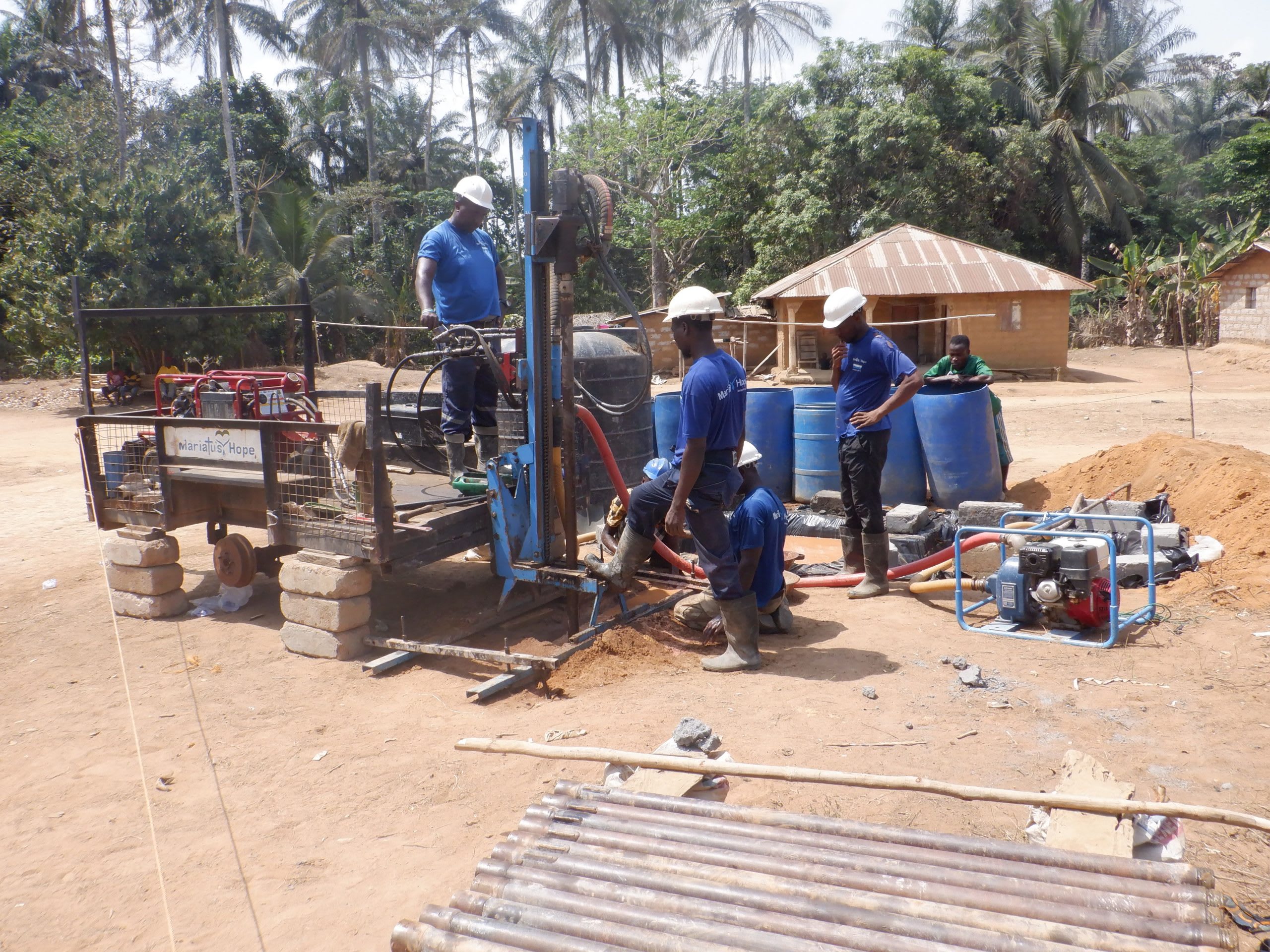The 200 people of Masanneh Community struggle to access sufficient water. Their well is often dry and overcrowded, so they are often deprived of the water needed to meet their basic needs.
Field Officer Julius Sesay said, "Masanneh is a community with a huge water challenge. The community [has] a protected dug well that has served for over twenty years. It is an old well and [has] lacked maintenance for quite a long time. It is having frequent breakdowns because of the pressure from the community people. The high demand for water from this well during the dry season is also causing pressure on the pump and further resulting in the frequent pump breakdowns."
Without easily accessible water in their community, people must trek down to the local swamp. The water isn't fit for consumption or use, and those who use it risk their health.

"The consumption of swamp water is also exposing the community people to contracting waterborne diseases because it is open to contamination. The contracting of waterborne diseases in this community will delay the tasks of the community people. This will also affect the families and reduce their means of getting a livelihood," continued Julius.
Like most people in this community, trader Isatu Bangura, 22, works hard to make a living. Any time not used to secure her livelihood takes away from her precious resources.
Isatu, seen below, shared her burden, "It is hard for me to fetch enough water [for] my house every day before I could go out to trade. It is difficult for me to get more sales because of the delay in fetching water and doing the morning duties before going out to trade. I have lost customers because they could not see me on time. This is affecting my business because I could not get high sales and profits to support my family."
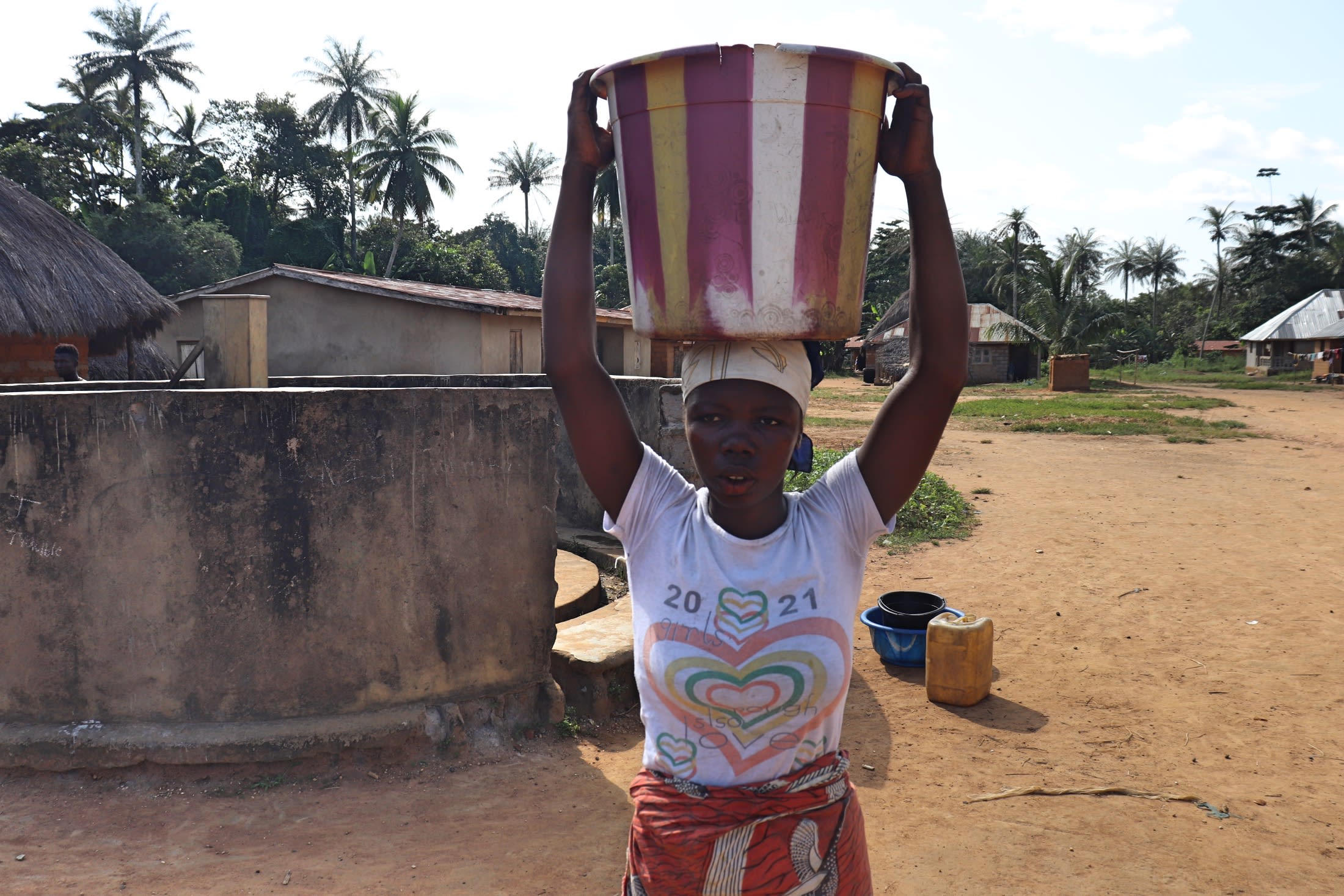
"It is hard for me to return to my house after trade to prepare food for my family. I cannot prepare food until I have fetched enough water from either the swamp or the well. I use enough water to cook, drink, and bathe at the end of the day. I am worrying because the time of water shortage in this community is drawing nearer. It will be in the dry season starting in March," she continued.
Isatu dreads the upcoming dry season, knowing her family will soon struggle even more than they already do. She worries about providing for their needs. Everyone shares this burden in the community, children and adults alike.
"The school-going children are the first group who rush to the well or swamp to fetch water in the morning before preparing to go to school. It is not easy for them to fetch water from the swamp [and] prepare for school on time because of the long distance (road to the swamp seen below) and the unavailability of enough water from the well. It is about four miles from this community to the Bundulai community, where the children are attending school. It is hard for them to trek to and from school to fetch water before the end of the day," said Julius

15-year-old Zainab K. is seen below at the swamp. She is familiar with the struggle of attempting to juggle the water crisis and her daily tasks. She shared, "It is not easy for me to do all the morning duties before going to school without being late. I would only achieve that when I wake up early in the morning to fetch water. Fetching water is a duty I must do every day except [when] I am sick or travel from this community. I cannot rest until I have finished all my daily duties, which include enough use of water."

"I have more difficult tasks to complete during the weekends when I have no lessons to attend. I even follow my parents to work on the farm during the weekend. It is not easy for me to concentrate on my schoolwork at home because of the multiple domestic duties I must complete. It will be easy for me to do all if I have easy access to water to do them quickly," Zainab concluded.
Without access to clean water, the people in Masanneh are forced to make difficult decisions that impact their health and well-being. The lack of water leaves them with no choice but to prioritize their basic needs over other necessities, leading to a vicious cycle of poverty and desperation. A reliable water source can make all the difference and provide them the opportunity to improve their lives.
Installing a new well will enable adults like Isatu to fully invest in their livelihoods, giving them the resources to better provide for their families. Children like Zainab will have more time to rest and choose to prioritize their studies toward a brighter future.
The Proposed Solution, Determined Together...
At The Water Project, everyone has a part in conversations and solutions. We operate in transparency, believing it benefits everyone. We expect reliability from one another as well as our water solutions. Everyone involved makes this possible through hard work and dedication.
In a joint discovery process, community members determine their most advantageous water solution alongside our technical experts. Read more specifics about this solution on the What We're Building tab of this project page. Then, community members lend their support by collecting needed construction materials (sometimes for months ahead of time!), providing labor alongside our artisans, sheltering and feeding the builders, and supplying additional resources.
Water Access for Everyone
This water project is one piece in a large puzzle. In Kenya, Sierra Leone, and Uganda, we're working toward complete coverage of reliable, maintained water sources that guarantee public access now and in the future within a 30-minute round trip for each community, household, school, and health center. One day, we hope to report that this has been achieved!
Training on Health, Hygiene & More
With the community's input, we've identified topics where training will increase positive health outcomes at personal, household, and community levels. We'll coordinate with them to find the best training date. Some examples of what we train communities on are:
- Improved hygiene, health, and sanitation habits
- Safe water handling, storage & treatment
- Disease prevention and proper handwashing
- Income-generation
- Community leadership, governance, & election of a water committee
- Operation and maintenance of the water point
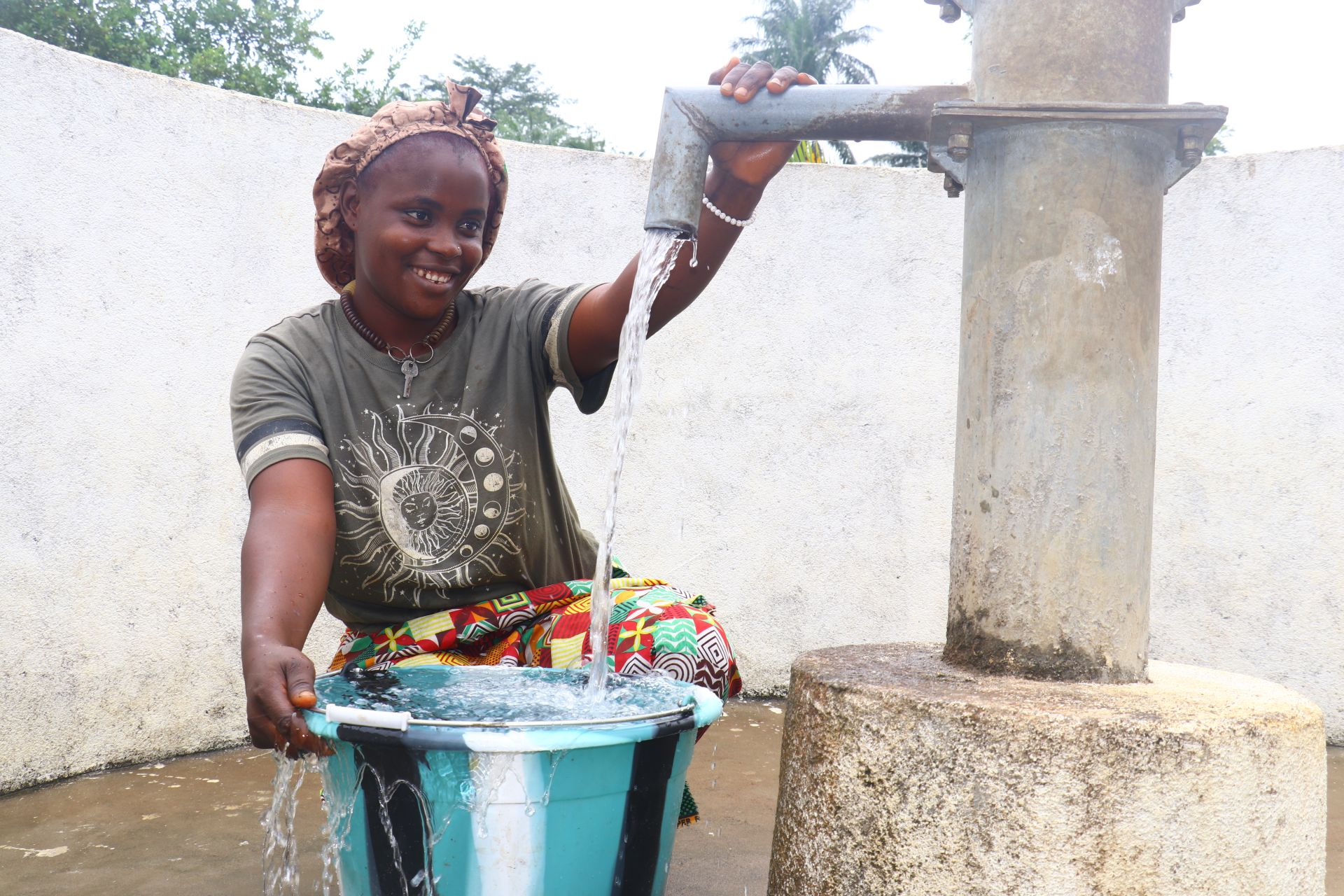

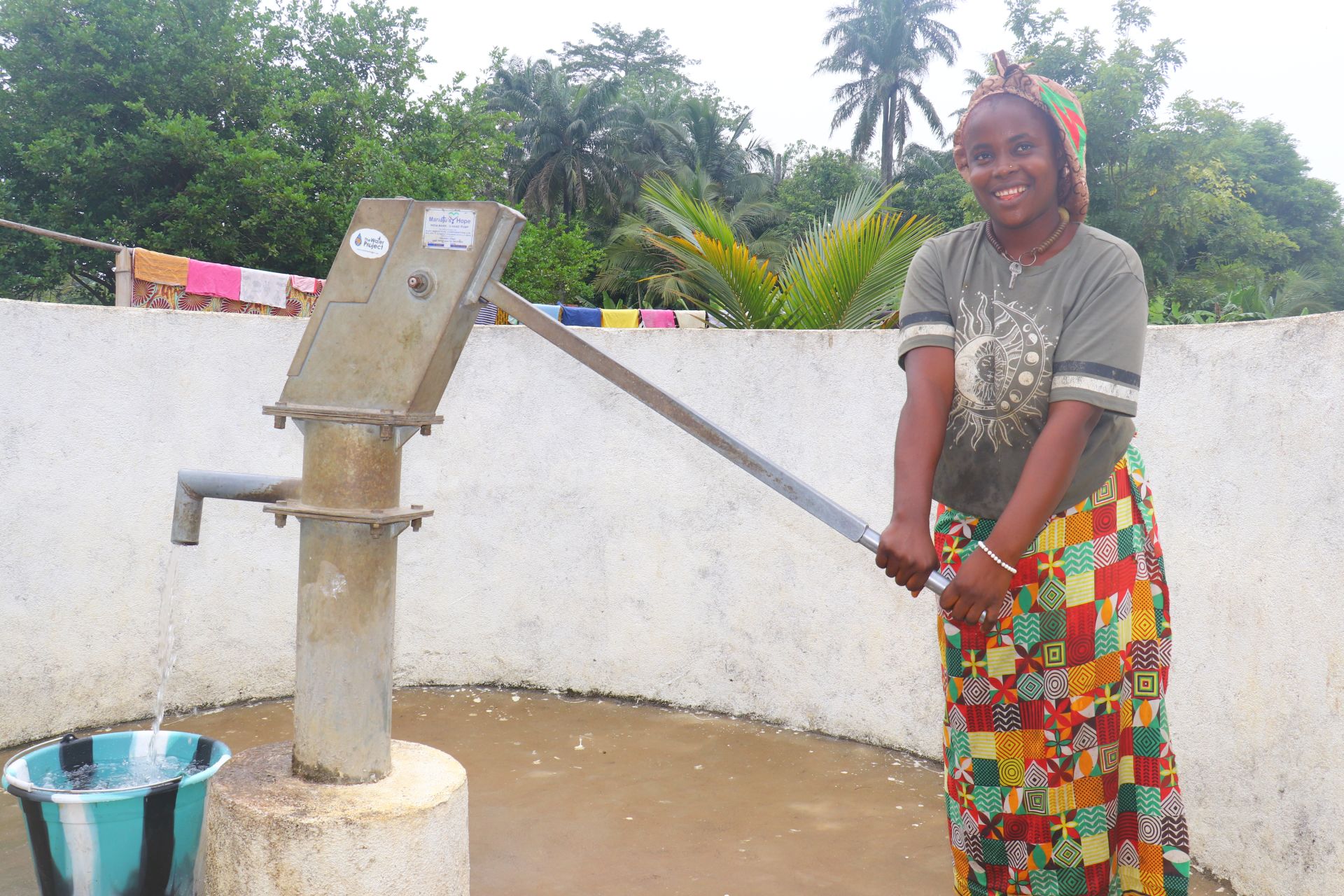
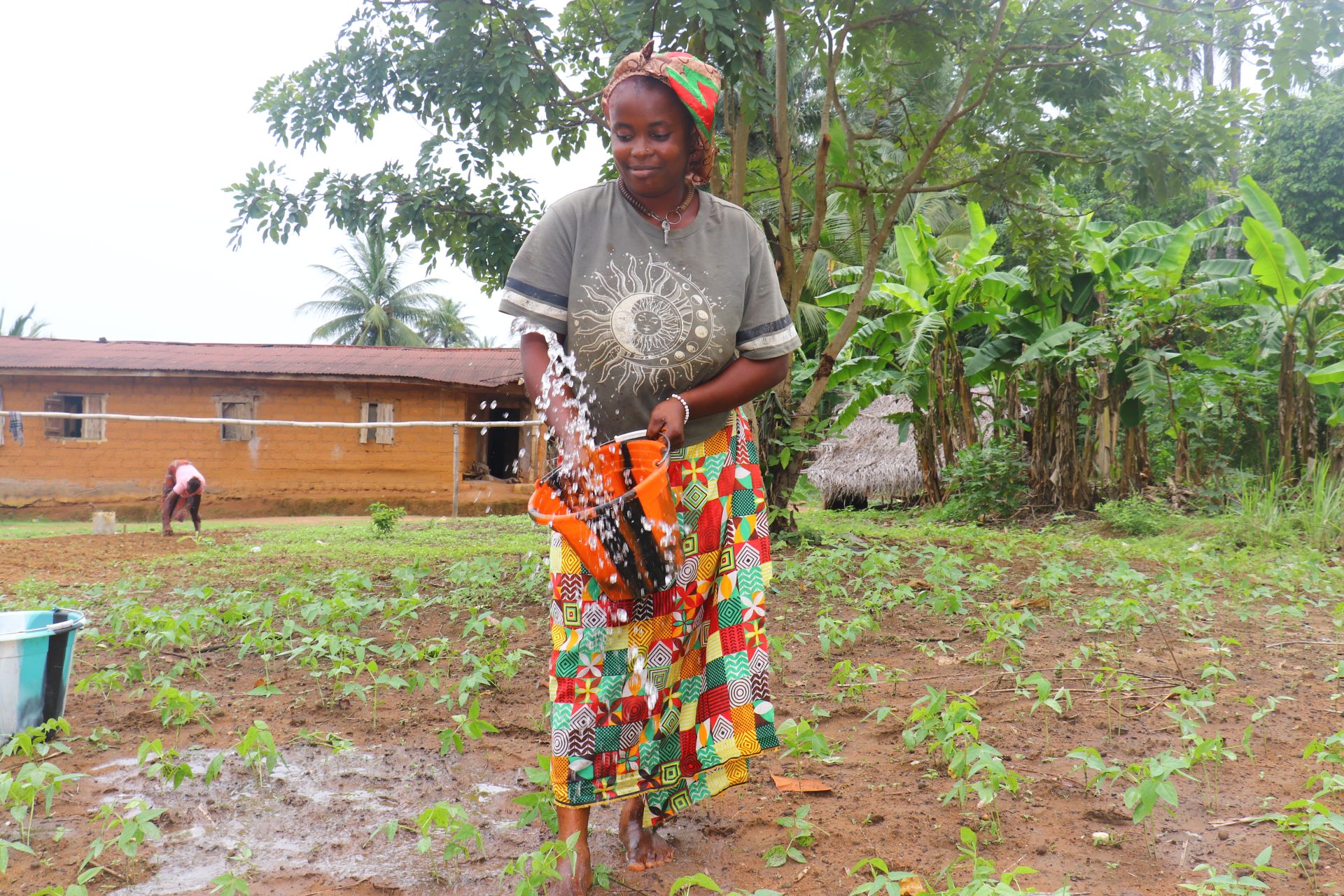

 Borehole Well and Hand Pump
Borehole Well and Hand Pump
 Rehabilitation Project
Rehabilitation Project

















